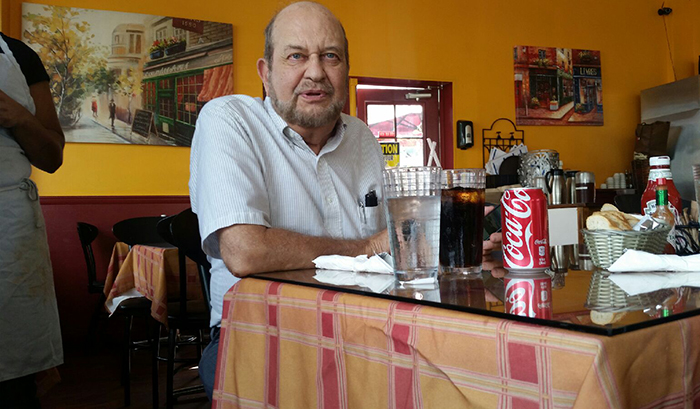There was considerable irony when a California parole review panel late on Oct. 27 – just 12 days before the fall election – denied parole for the 17th time to Charles (Tex) Watson, self-described “right hand man” of Charles Manson, participant in at least seven of the Manson Family murders and leader of some of those murders.
Watson’s parole denial came even as early voters were overwhelmingly backing the idea of eased paroles for “non-violent” convicts, on the ballot as Prop. 57, even though some clearly violent crimes are not legally classified as that. These include things like soliciting murder and rape of an unconscious or dead person.
The Watson decision made it clear that paroles mostly likely will continue to be anything but automatic, even if past parole boards have tried to free several of Watson’s fellow Mansonites, including the likes of knife-and-sword wielding Bruce Davis and Leslie van Houten, who stabbed and held down some of the gang’s victims and then used their blood to scrawl race-baiting slogans on walls.
Gov. Brown, who did more than anyone else to push through Prop. 57, repeatedly has vetoed their proposed paroles, saying at one point that “In rare circumstances, a murder is so heinous that it provides evidence of current dangerousness by itself.” The Manson gang’s murders, he said, fit into that category.
Even though Mr. Brown advocates strongly for easing paroles and giving convicts incentives in the form of early releases for good behavior and academic achievement while in prison, he makes exceptions for the most virulent murderers.
Nothing Will Help Them
You can, therefore, expect the Grim Sleeper (Lonnie Franklin Jr.), who killed at least 10 women between 1987 and 2002, to stay in jail a long, long time, even if he somehow evades the death penalty recently ratified by voters who rejected the fall’s Prop. 62. The same for former Arcata trucker Wayne Adam Ford, who killed four women and dumped their body parts all around the state. And for onetime Yosemite-area motel handyman Cary Stayner, who killed four persons, one of them a nature guide whom he beheaded.
It’s a pretty sure bet Mr. Brown would veto all their paroles, if they somehow escape execution and review boards ever approve parole, because of the purely heinous quality of their crimes.
The real question, now that Prop. 57 is in place, will be whether governors coming after Mr. Brown, who leaves office in two years, continue to understand the importance of making sure prominent murderers and rapists remain behind bars for life, even if they somehow evade the death sentences originally handed them, as many Manson Family members managed. (Their sentences were commuted when the state Supreme Court ruled executions unconstitutional in the 1970s, a stance later reversed by the U.S. Supreme Court.)
Mr. Brown remembers the Manson murders well, as some of them (actress Sharon Tate and others killed and mutilated by Watson and friends) occurred only two canyons over from where he then lived in Laurel Canyon among the Santa Monica Mountains near Hollywood.
Some academics and others who oppose the death penalty as inhumane contend the prospect of executions does not deter crime. But no one knows what some prospective killers might do if they come to understand they can eventually be freed again, while their victims remain dead.
One Manson Family juror (now deceased) told this column in 1995 (more than 20 years after that trial) that he never regretted voting for the death penalty. “I can still see the gruesome pictures of the Manson victims like Sharon Tate and Shorty Shea and Leno and Rosemary LaBianca; they come into my mind. It’s like I can still see their wounds.”
For that juror, family members of the victims and others who visited the Manson crime scenes, it’s important that Manson and his minions never get the freedom they denied their bloodied victims. It’s the same for victims of other vicious criminals who may now appear benign after years in prison.
Not even Prop. 57 and its eased paroles currently threatens to loose such convicts upon the public. Keeping the feet of each new governor to the fire remains important, for the victims and what they and their families and friends lost should never be forgotten.
Mr. Elias may be contacted at tdelias@aol.com. His book, “The Burzynski Breakthrough, The Most Promising Cancer Treatment and the Government’s Campaign to Squelch It,” is now available in a soft cover fourth edition. For more Elias columns, visit www.californiafocus.net








